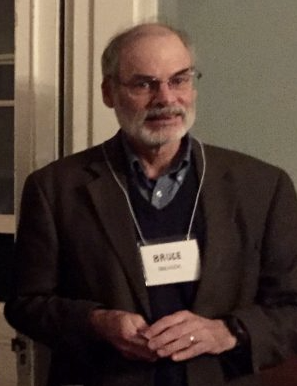Leaning into Taxes!
Want an excellent mental challenge to hold off cerebral atrophy?! Here’s one you might want to consider.

First, a bit of background biography: As a (mostly) retired economist, I have worked on a variety of policy issues, not least tax policy. I taught tax policy, lectured on tax policy, wrote papers on tax policy, and advised several governments on tax policy, and helped design a major tax reform program in Zambia in the early 1990s.
On the home front, I confess to enjoying the challenge of wrestling with my tax return each year using a detailed spreadsheet to avoid TurboTax and H&R Block. Despite the fact that our tax system is a Byzantine mess, that government operations are hardly models of efficiency, and that government priorities are often misdirected, I still look upon the payment of tax as a core responsibility of citizenship to finance essential or valued public goods and services. (Note: I use a “mental earmark” to assure myself that my payments are used for roads, education, and national parks. As long as budget funds are fungible, who’s to say that it isn’t my money being used for those purposes?)
Well and good, but I always felt a nagging gap in my relationship with taxation, in that I never helped any actual people cope with their tax returns.
Then, two years ago, I saw a note in an AARP newsletter about AARP’s Tax-Aide service, under the IRS Volunteer Income Tax Assistance (VITA) Program. This service has mobilized thousands of volunteers at more than 5000 locations nationwide, providing no-cost tax-preparation support for 1.5 million taxpayers each year, mostly low and moderate income seniors..
With some hesitation about the time and effort involved and some trepidation about taking on the responsibility of helping confused taxpayers prepare and file their returns, I signed up to volunteer. That earned me two very fat e-books covering every intricacy of the tax code that an AARP Tax Counselor needs to know about. Plus two weeks of full-day training on key issues and procedures (far too quickly for comfort), access to a special IRS-VITA version of TaxSlayer software, and a few dozen case-study tax scenarios with varying degrees of complexity.
The learning curve was steeper than I had expected because there were so many technicalities that I had never encountered in preparing my own tax returns. Never had I dealt with the Earned Income Tax Credit, or the treatment of gambling expenses, or the American Opportunity Tax Credit, or (thank goodness!) tax rules governing divorce and spousal death. After completing my studies, I had to pass two exams for certification by the IRS. One exam covered procedures and ethics (very easy), while the other dealt with case-study scenarios of increasing complexity.

After finishing the training and the studying and passing the tests, I was assigned to work several half-days each week from mid-February to mid-April as part of a small team in each of three towns near my home. My initial encounters were rather intimidating, though the returns were not especially complicated. Fortunately, my local coordinator was a gem of a resource for answering my questions and resolving uncertainties.
And there I was, helping actual people!
If you have any background in eeconomics, accounting or finance, if you habitually pay attention to footnotes and the fine print, or if you’re simply looking for a challenging volunteer opportunity help a lot of people deal with one of Ben Franklin’s two certainties in this world, I encourage you to look into the AARP Tax-Aide service. To get started, see: https://www.aarp.org/money/taxes/aarp_taxaide/.
#
Bruce Bolnick
Trumbull ‘69
Topsfield, MA, and Lunenburg, VT


Bruce, you haven’t lost a bit of your charm and touch since I met you at the Trumbull dining room our junior year. Bravo on your volunteering!
Yes, Jon, Bruce is a sweet guy. A few years back, at a small class gathering in Boston, Bruce gently reminded me that we had bussed dishes together on our freshman bursary jobs at Timothy Dwight. My addled brain had forgotten. What I didn’t forget about the TD experience was the Polish chef’s daughter. He had invited me (us? Other busboys? There were others, yes) to his house in East Haven, and plied us with food and vodka. I was smitten with the daughter, but too drunk to even know what to do about it. After the lunch, she drove us back to New Haven on his motorboat. Could he have been trying to make a match? Thanks, Bruce.